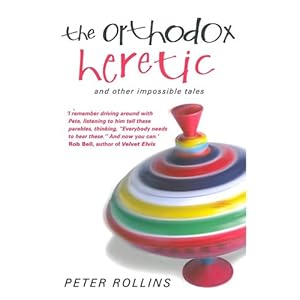
10. When serving a plate of food, a homeless man says to you “Would YOU eat that?”
9. When offering food to a homeless, hungry man he says to you “Is it cold? I don’t eat cold food.”
8. When offering salad to a homeless woman, she says “No crunchy pieces. Only salad with no croutons.”
7. When offering salad to a homeless person, he says “I don’t eat salad.”
6. A homeless man looks at the food I’m offering him and says, “Hey, even homeless people have standards! You know what I mean?”
5. A homeless man sees you without a phone and offers you one of his two cell phones.
4. A homeless woman in a soup kitchen turns down your Moroccan chicken soup saying, “No, thanks. I’m a vegetarian.”
3. A homeless person offers you a job.
2. A homeless man pats his tummy and says to you “I’ve decided I need to lose a few pounds.”
1. A homeless man complains about rising prices and backs it up by showing you his energy bills.
UPDATE
All those top ten stories are real by the way. No joke.
Hi, everyone. I’m back. I took a break because I didn’t like some of the responses I received back and needed to take a break from writing. It’s really hard to write about yourself all the time (especially once a week); sometimes you need a break from it. But I’m back.
The biggest item at the moment is next year. I’m in job searching mode as my fellowship will end in August next year (2011). It is possible that I could be hired on, but since that is unknown, I need to go ahead and start looking. I’m not very motivated to do so at the moment.
Last night I had a progressive dinner; they are one of my favorite things. We had a 6-course meal where each course was hosted at a different person’s house. I was the organizers and I offered my house for one host whose house was too far out of the way. I had to plan the route so that you didn’t walk too many blocks between houses. We hosted the progressive dinner for 20 people, and even though people canceled their RSVP they day of the event and new people asked to come the day of the event, even though some left early and some started the route late, it was a good night. I enjoyed meeting all the people I did and hopefully developed some old relationships. I’m working on developing new ones as well.
I haven’t written in 4 months, so I wanted to share that this fall we had an acorn epidemic. I walk a lot in DC, for fun sometimes, too. And I will be walking outside; all of a sudden, I hear a large thud that sounds like someone threw a rock at a car or a squirrel fell. But when I look I don’t see anything. Slowly after seeing this a number of times, I’ve realized it’s acorns, falling acorns. We have the largest acorns I have seen in my life. They are like small boulders. When one falls on you, you wake up the next day. They damage cars. Squirrels consider this part of the country paradise. Rodents play pirates treasure with them. And the candy corn industry booms at Halloween time.
But my favorite part of my day in my daily walks is a walk through a certain part of my neighborhood that has a mix of White and Black and some Latino peoples and Asian dry cleaners whom I love but who fail to get stains out of clothes (I really believe cleaning was supposed to involve water). In this part of my neighborhood there is one house I love. This particular house has a garden in the front and the back. And most times during the day. Though you can’t see the back of the house, you can see in the front that they are growing various vegetables and roots and perhaps herbs and spices. What makes this place lovely is not the actual house itself; it needs help. But the people there are always out and they are always ready to talk with anyone who wants to stop and talk or “shoot the breeze.” It reminds me of what I call the “porch culture.” I love porches (communities with porches) because they foster and cultivate a culture of neighborliness and community in your neighborhood if you let it. People sit on the porches in the cool of the evening or dawn and they talk to their neighbors. And that’s what happens at this house. The man who lives there is a big man, who walks slowly, and has a hole in his trachea from an operation. But his heart is big.
I still haven’t told you why I like this house. What is amazing is that this man takes the vegetables he grows and puts them in boxes on tables at the edge of his yard/garden near the sidewalk. And anyone may take some home! I love this. Few people in my side of the neighborhood understand this, but it’s what I understand about how to live. He sows alone but allows others to reap where they have not sown with no obligations or strings attached or expectations. Take and eat freely. It’s a gift (a true gift is one that you don’t endeavor to pay back). And I love it. It’s also practical; a lot of what he grows would go to waste if he didn’t give it away. And do you know many of the conversations had in his yard outside his house start from people rummaging through the vegetables and food left for people to take--kale, potatoes, cabbage, carrots, etc.
But let me finish. It’s my favorite part of my day (I doesn’t take much, huh? Ha!) even when no one is there talking, even when no food is there to share. It’s my favorite part of my day because in his yard is a toilet. I’m tearing a bit because of the symbolism of it. When facing the yard in front of the house, the toilet is against the right border of his yard, up against a wooden fence, 3 feet high. The toilet base of the toilet is almost hidden in dirt. You can only see the very top part of the base as it reaches and curves toward the site and tank. But not only is there dirt packed around the rooted toilet but inside the toilet there is dirt. The seat is open and spring up from the depths of the toilet bowl are flowers growing in the dirt and soil and muck of the toilet. They are strong flowers, sprightly and eager, reaching to the sun as they reflect its rays in their yellow and orange “carnations.” Their stems are as green as goodness and they grow with no regard for their home or where they started or their environment. But that’s not all. There is also dirt in the tank. It’s lid is missing and out of the tank, more flowers spring forth and grow. For some reason I have hope when I pass it. It doesn’t mean any of my situations will necessarily change. It doesn’t mean that everything I’ve lost recently will be reclaimed right now. But it means there are people that are in the business of reclaiming, redeeming, reusing, and reinventing. And that is the kind of work that inspires and lights. I see these types of moments of lucid clarity and bright illumination all around. And the movement is growing.
It’s art but it’s art of a different kind; it’s living art. It reminds me of the ancient Jewish prophet who prophetically (and I still wait to this day) spoke of a day when we would “beat swords into ploughshares and their spears into pruning hooks,.” It reminds me that I’ve got muck in my life and some mistakes whose effects I still feel, but it can be made recreated. The toilet doesn’t go away, but it’s reinvented and new life can be born. This life is different than I imagined, but it’s new. It’s new, and it’s life.












